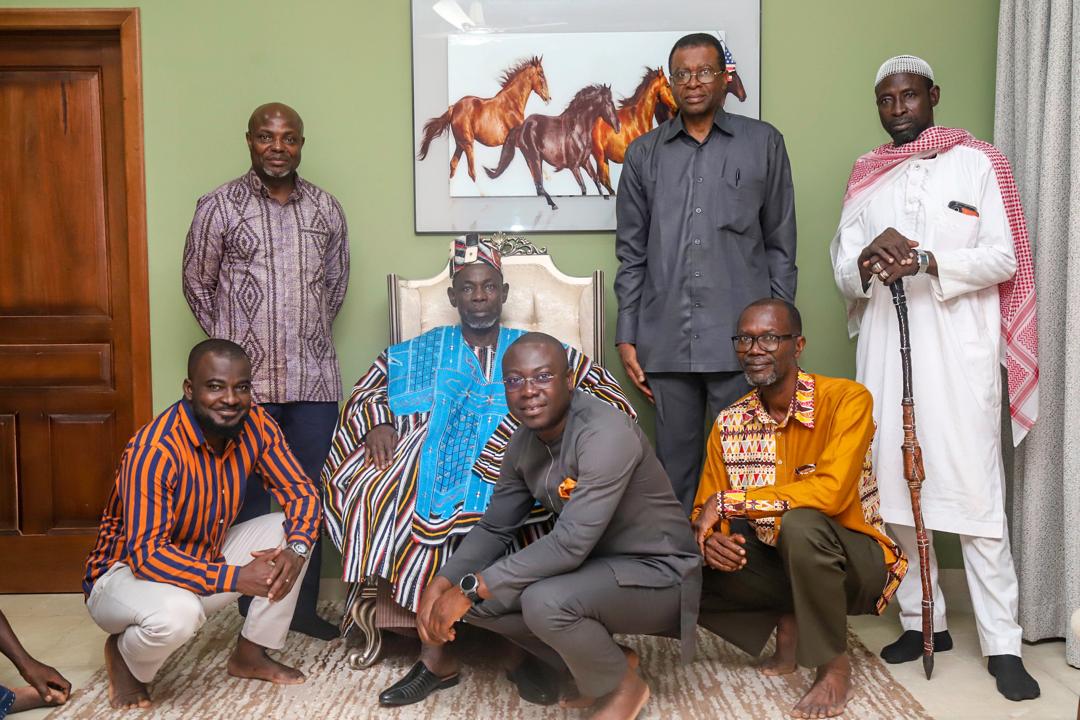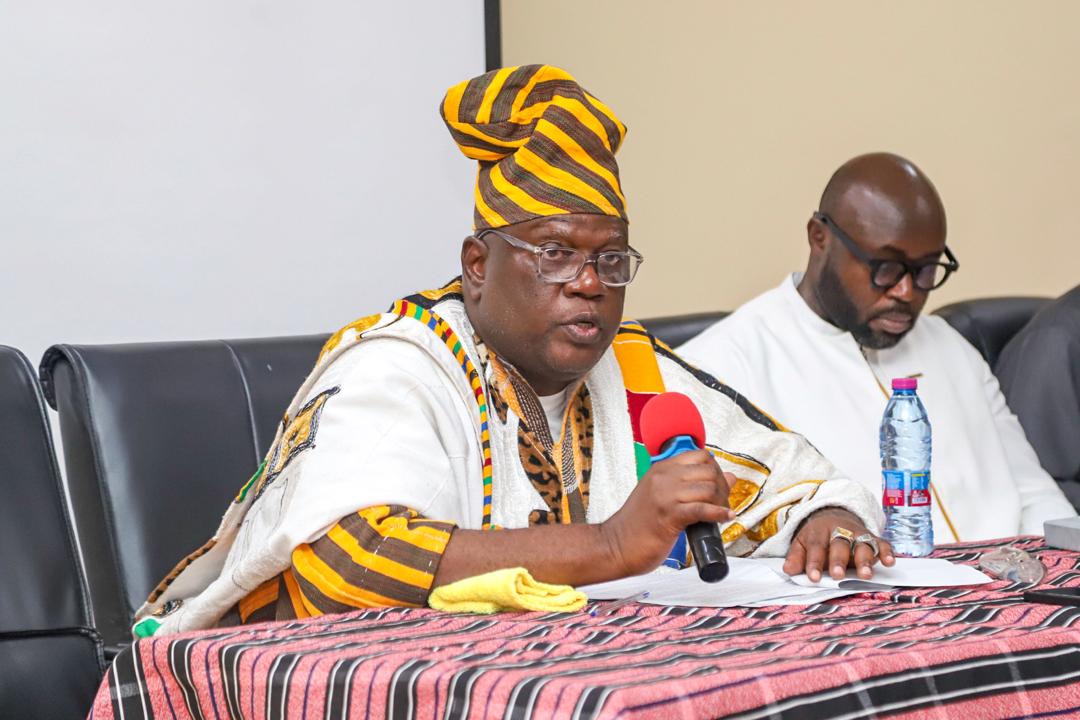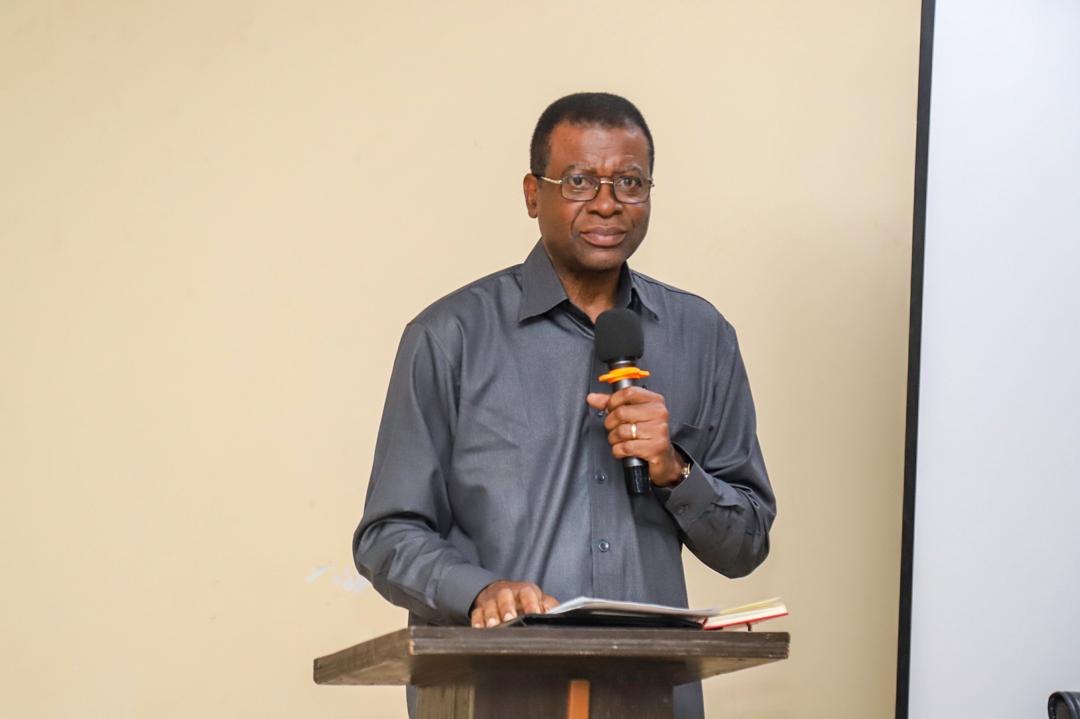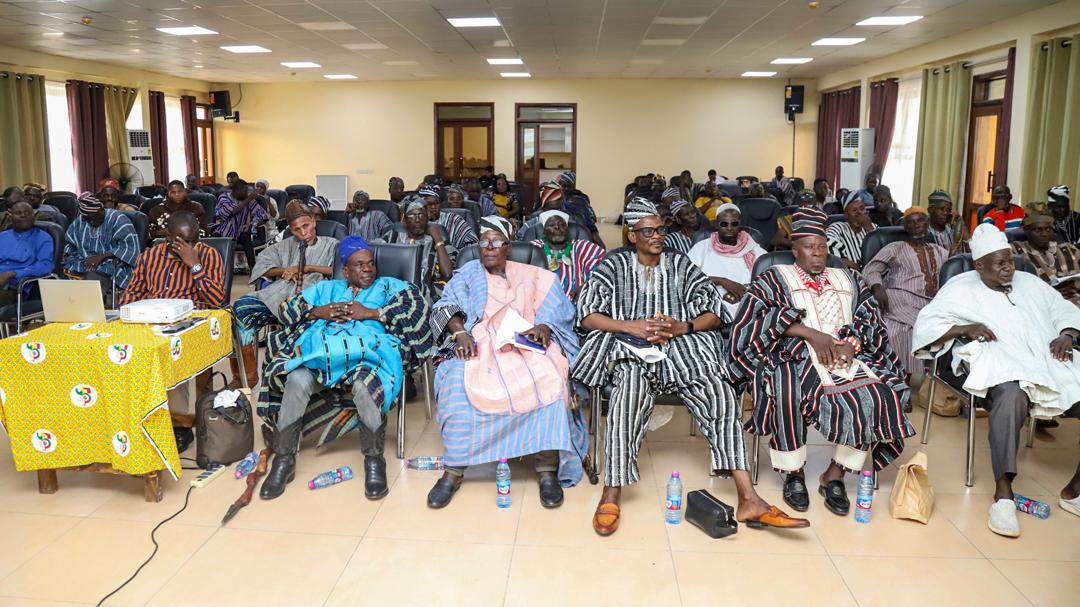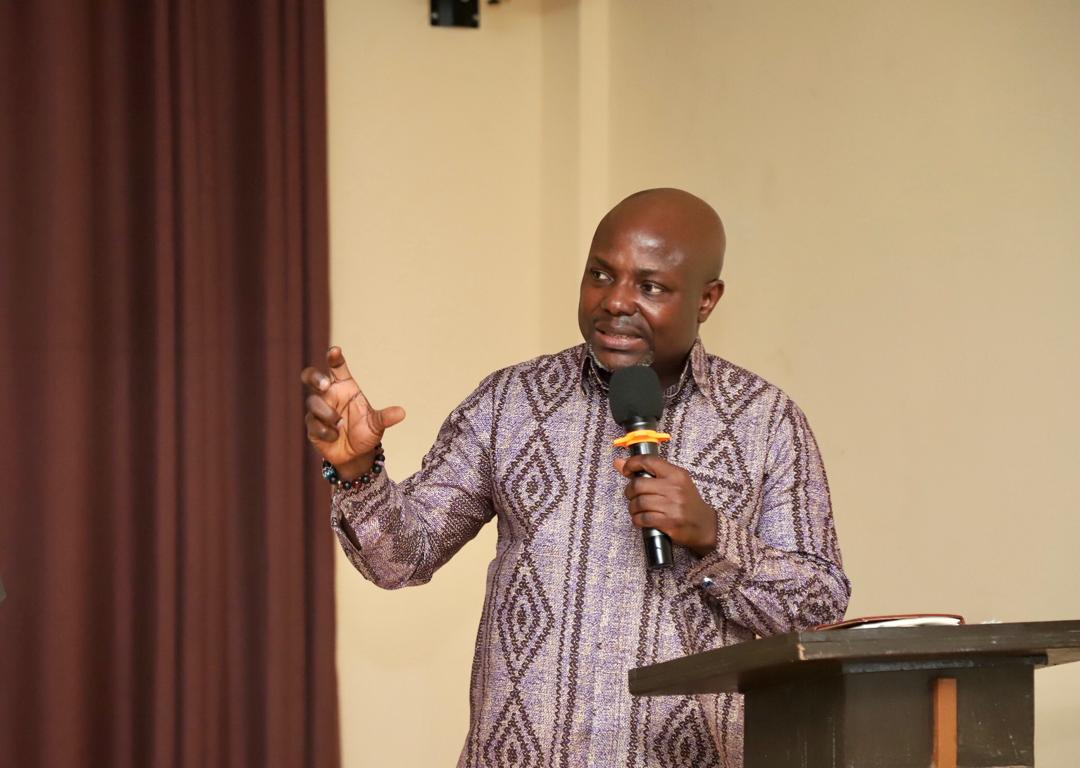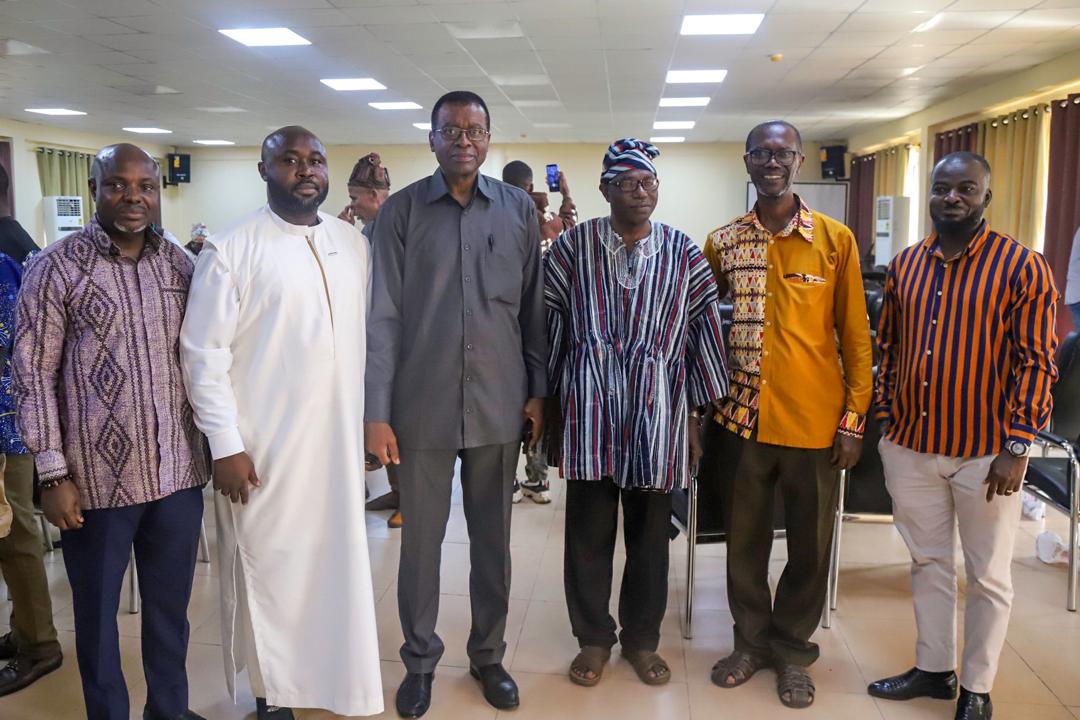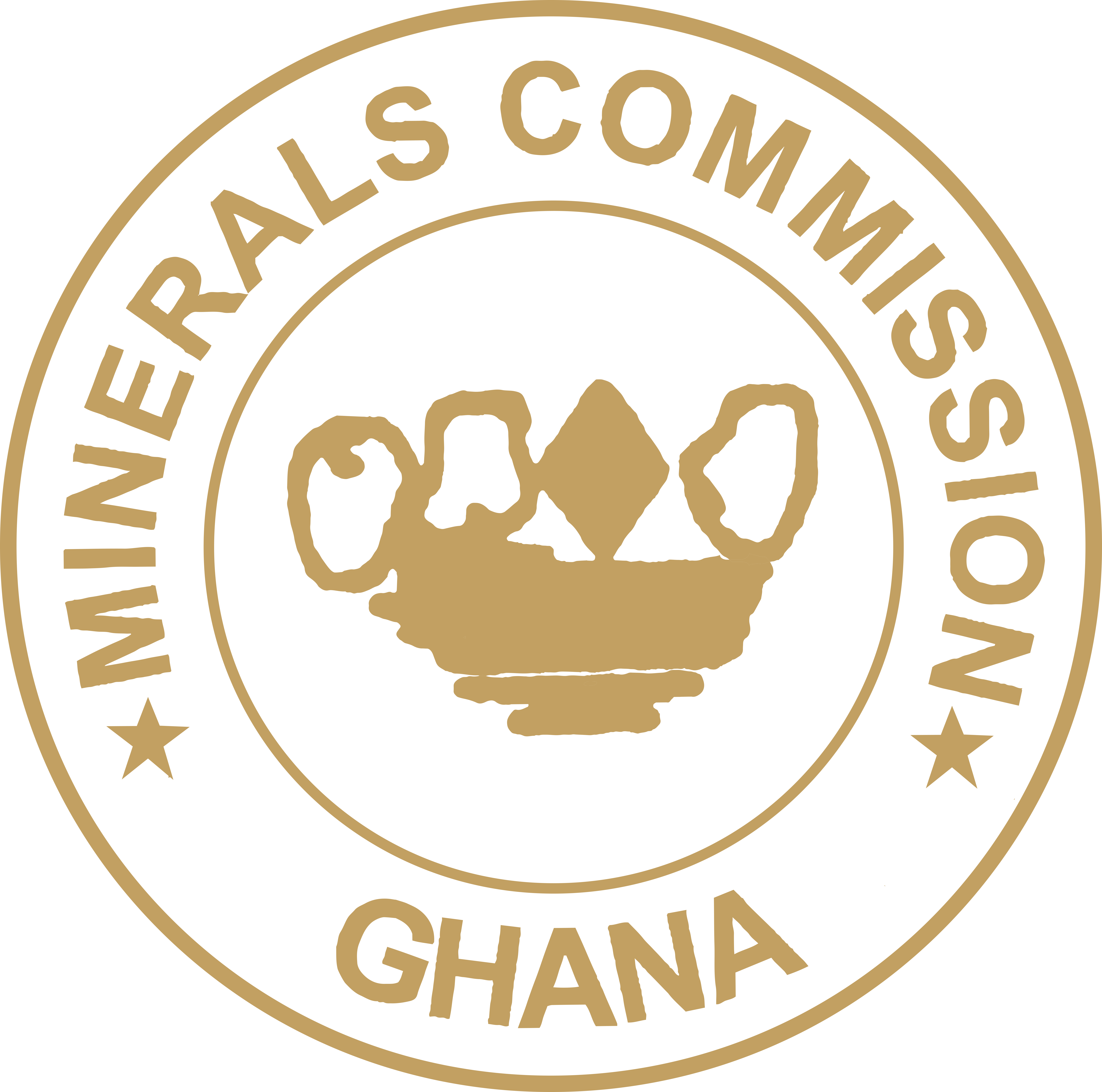Minerals Commission meets Savannah Regional House of Chiefs on Amendments to Minerals and Mining Law and Policy Reforms
On Monday, July 14, 2025, the Minerals Commission convened a consultative meeting with the Savannah Regional House of Chiefs to discuss proposed amendments to the Minerals and Mining Act, 2006 (Act 703) and the Mining Policy of 2014. The meeting, held at the Regional Coordinating Council in Damongo, was chaired by Kpembewura Banbagne Ndefoso IV, Vice President of the Savannah Regional House of Chiefs. During the event, Kpembewura Banbagne Ndefoso IV delivered a speech on behalf of Yagbonwura Bii-Kunuto Jewu Soale I, President of the Savannah Regional House of Chiefs and Paramount Chief of the Gonja Kingdom.
Kpembewura Banbagne Ndefoso IV, warmly welcomed the delegation from the Minerals Commission and the Ministry. He expressed gratitude to the Chiefs for their participation in the meeting and their willingness to engage in the policy review process. He emphasized the importance of ensuring equity and fairness in the licensing process, highlighting the critical role that Chiefs play in allocating land for mining activities. He advocated for a more transparent approach and called for further enhancements to the process. The Kpembewura reaffirmed the commitment of the Chiefs to support the government’s efforts to reset the mining sector. He praised the Minister’s initiative and emphasized the need for active support to achieve the reset mandate, which aims to sanitize the mining sector, promote environmental stewardship, and improve governance.
The Savannah Regional Minister, Hon. Salisu Be-Awuribe, emphasized the significance of traditional lands and the region’s rich mineral resources, stating, “It is a reality that all lands belong to the Chiefs, and our region is blessed with numerous minerals, including gold.” He expressed concern about the practice of serving notices to traditional communities who may not be fully aware of the extent of mineral rights holders’ activities. Hon. Be-Awuribe encouraged the Chiefs to remain engaged stakeholders and actively participate in discussions to ensure that the region derives full benefits from its mineral resources.
Prof. Jerry Samuel Yaw Kuma, Advisor to the Minister for Lands and Natural Resources, Hon. Emmanuel Armah-Kofi Buah, delivered a keynote address underscoring the importance of Ghana’s ongoing review of its mining regulatory framework. In his remarks, Prof. Kuma emphasized that the policy review demonstrates the government’s dedication to modernizing the country’s mining legislation in response to evolving industry challenges and opportunities. “This comprehensive reevaluation of the law and regulations is to ensure relevance, inclusivity, and responsiveness to both global best practices and local socioeconomic needs” he stressed. Prof. Kuma further elaborated on the government’s progressive initiative to reform Community Mining into a Cooperative Mining framework, explaining that this transformative approach introduces a structured cooperative model, integrated with mini-refineries, to enhance local community participation and ensure direct economic benefits from mining operations. Additionally, the Minister’s Advisor reinforced the government’s unwavering commitment to environmental sustainability, detailing enhanced regulatory measures to protect water bodies from pollution and promote responsible mining practices. He further highlighted the indispensable role of traditional leaders in the mining licensing process, acknowledging their constitutional mandate and institutional knowledge in land stewardship and resource governance.
Mr. Benjamin Aryee, former CEO of the Minerals Commission and Chair of the Review Committee, participated in the function to discuss the proposed amendments and reforms in the mining sector. He highlighted the government’s initiative to decentralize the Commission’s operations by establishing regional and district offices across the country, aimed at streamlining the licensing process and enhance local participation. Mr. Aryee outlined key government interventions, such as deepening Local Content and Participation by enhancing Ghanaian ownership in mining projects through share acquisition and listings on the Ghana Stock Exchange. He also provided an overview of the 12 chapters of the policy, emphasizing areas that require attention, such as effective consultation with mining communities and adherence to global best practices. Mr. Aryee highlighted global trends and local concerns and stated incorporating Environmental, Social, and Governance (ESG) compliance, climate change mitigation, and improved health and safety standards in the new policy.
Mr. Josef Iroko, Manager, Legal at the Commission, gave a comprehensive overview of the current legal framework and proposed amendments to the Law. He emphasized the Commission’s role in reviewing and recommending mineral right applications for approval or rejection by the Minister, who holds the authority to grant mining leases or licenses. Mr. Iroko highlighted the critical functions of Chiefs in the administration and processing of mining licenses, underscoring their importance in the regulatory framework. He also discussed several key aspects of the revised law, including; gender mainstreaming, rights and needs of Persons With Disabilities (PWDs), strengthening the Extractive Industries Transparency Initiative (EITI) to promote transparency and accountability, and securing parliamentary ratification of mining leases within 60 days of grant. He further outlined proposed changes to existing agreements, which include the introduction of a compulsory 1% gross revenue of mining companies as Community Development Agreement (CDA) to promote community growth. Mr. Iroko pointed out the need to reduce Stability Agreement duration from 15 years to 5 years maximum and abolishing Development Agreements due to their limited benefits to the country.
Following extensive discussions, the chiefs expressed concerns and proposed the following recommendations for the Review Committee’s consideration:
- Ownership of Immoveable Properties: Upon completion of the mining cycle, all immovable properties on the land should revert to the landowners rather than the government.
- Addressing Illegal Mining: Effective measures should be implemented to tackle the issue of illegal mining.
- Inclusion of Stool or Skin: The law should be amended to include “Stool or Skin” in its narrative, recognizing traditional authorities role in land ownership.
- Consent Requirement: A consent form should be introduced, requiring Chiefs to sign off prior to the granting of mineral rights, ensuring their involvement and approval in the process.
Prof. Kuma called on the House of Chiefs to thoroughly review the proposed amendments and submit their feedback within a two-week timeframe for consideration by the Review Committee. He emphasized that Ghana’s aspiration to be a leader in responsible mineral resource management hinges on the successful implementation of these reforms, which are expected to substantially boost the sector’s contribution to national development.
-End-
